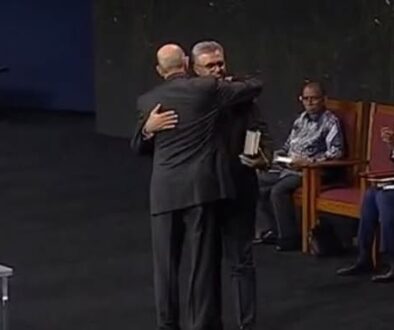Oh, Sweet Child of Mine: Conflict Resolution for Kids (and Adults, Too)
- Conflict resolution best happens when tensions are not high.
- Try to agree on what the conflict is all about.
- A true empathetic apology should not be missed in conflict resolution.
26 July 2022 | by LaVonne Long for Northwest Adventists:
I have a tween and teen in my home now, and healthy communication has become so important to me. In all the stages of their growth so far, I’ve been able to tell them what to do, and they’ve obeyed (mostly). Rewards and grounding both seemed to work. But now? I need better tools in my parenting belt to communicate more effectively.
I am using a lot of nice words here, aren’t I? Honestly, when there is conflict in our home, my kids want more than “the law of Mom.” They want to know why. They want to understand and somewhat agree with what I am saying. So I am trying to do better with conflict resolution in my home, and honestly, it helps me outside my home, and will help them in their own lives. Parenting is tough stuff, right?!
Conflict Resolution for Kids
I have learned the hard way that conflict resolution best happens when tensions are not high. Everyone must take a break, come back later and discuss when we are not frustrated. We cannot communicate effectively when we are angry or hurt.
Name Feelings
Be honest with the kids and let them be honest with you. “I feel angry” or “I feel frustrated right now” is okay to say. We’re all human and experience a wide range of feelings. Teach your kids to name their feelings and use those “I feel” statements. Let them feel their feelings.
Clearly State What the Conflict Is
Try to agree on what the conflict is all about. Sometimes, I leave my kids a piece of paper to write what happened in their own words. Once the conflict is named and agreed upon, it’s easier to try to find a resolution. Set some rules, too. No name-calling, violence, or interrupting are great rules to have in the home.
Role Play
Decide what should happen to resolve the conflict. Sometimes we role-play how we should have asked/responded or behaved. Even moms make mistakes, right? I am not too proud to apologize when I am the one that blew it. A true empathetic apology should not be missed in conflict resolution.
Model
This one is difficult. It requires us, the adults, to try and consistently model these conflict resolution skills. It might be conflicts with them but also conflicts with your spouse, co-workers, church members, and neighbors. This shows our kids that resolving conflict is doable, even when it’s hard.
Truly, conflict resolution is a lifelong skill we all need. Starting this process when the kids are young is beneficial for everyone. Not only will it build self-confidence in the kids when they understand how to communicate more effectively, but it also teaches respect. We don’t always have to agree, but we can communicate positively and love each other.
Just a quick reminder; Paul tells us in Ephesians 4:31-32, “Let all bitterness and wrath and anger and clamor and slander be put away from you, along with all malice. Be kind to one another, tenderhearted, forgiving one another, as God in Christ forgave you.”
(Photo: Conflict resolution best happens when tensions are not high. Everyone must take a break, come back later and discuss when they are not frustrated. We cannot communicate effectively when we are angry or hurt, according to LaVonne Long, family columnist for Northwest Adventists. Photo by Victoria_Art via Pixabay.)




